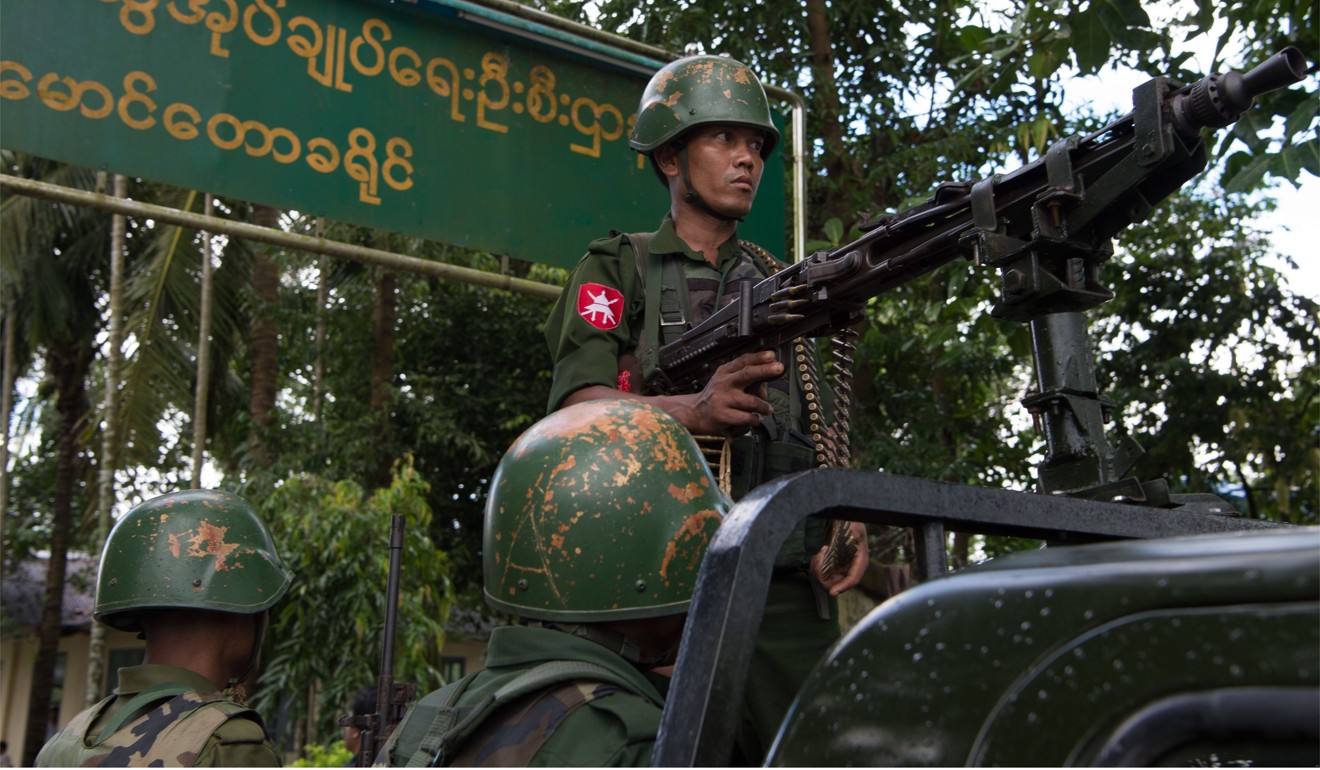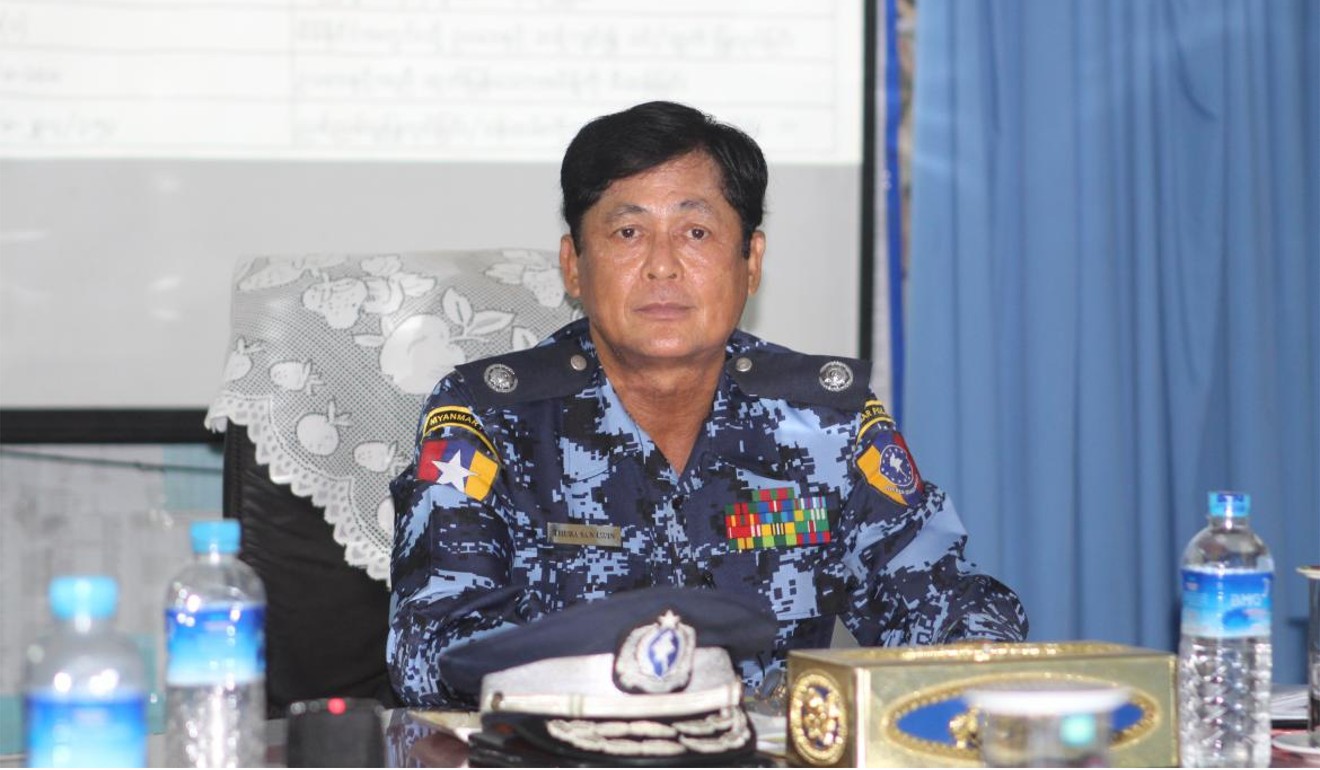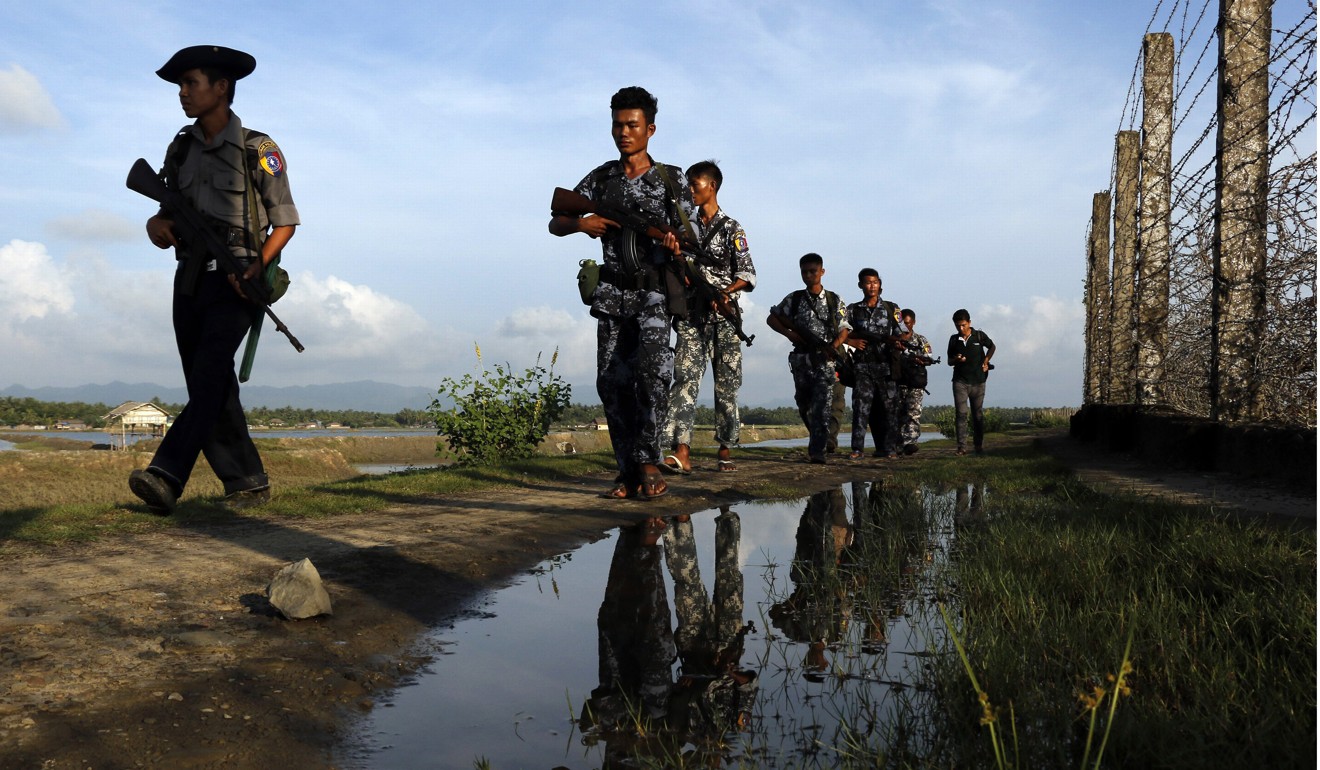
US sanctions Myanmar military commanders over Rohingya ‘ethnic cleansing’
Washington accuses the army and border guard officials of ‘serious human rights abuses’
The Trump administration on Friday imposed sanctions on four commanders and two military units in Myanmar over their involvement in alleged ethnic cleansing of the country’s Rohingya Muslim population.
The sanctions against Myanmar will freeze the US assets of the military officials and prohibit American citizens and businesses from engaging in business with them. The penalties appear narrowly targeted towards individuals and units who are said to have conducted specific acts of violence in a civil war that has seen hundreds of thousands of Muslim Rohingya refugees flee the country.

Those sanctioned include Aung Kyaw Zaw, who oversaw military and border police operations that resulted in the death of thousands of people in what the US government calls an ethnic cleansing; Khin Maung Soe, who oversaw security forces who reportedly beat, sexually assaulted and killed dozens of people; Thura San Lwin, whose subordinates are accused of extrajudicial killings; and Khin Hlaing, whose troops are accused of using villagers as human shields.
“Burmese security forces have engaged in violent campaigns against ethnic minority communities across [Myanmar], including ethnic cleansing, massacres, sexual assault, extrajudicial killings, and other serious human rights abuses,” Sigal Mandelker, Treasury Under Secretary for Terrorism and Financial Intelligence, said in a statement.

“Treasury is sanctioning units and leaders overseeing this horrific behaviour as part of a broader US government strategy to hold accountable those responsible for such wide scale human suffering.”
American leaders have warned of the possible sanctions for months, with former Secretary of State Rex Tillerson saying last year that the US would “pursue accountability through US law, including possible targeted sanctions”.
The US decision to impose sanctions could drive the Myanmar government closer to China. The Chinese backed Myanmar’s military junta for over two decades as the West applied sanctions on the government, and is now seeking to build an economic corridor stretching from landlocked Yunnan province to the Bay of Bengal.

The Rohingya crisis was sparked last August when militants from the Arakan Rohingya Salvation Army attacked 25 police and army posts, killing a dozen security officials in Rakhine state.
The military responded with what it called “clearance operations”. Multiple reports have since accused security forces and Buddhist vigilantes of indiscriminately attacking Muslims in the state and burning their villages.
Myanmar’s unofficial leader Aung San Suu Kyi has seen her reputation tarnished by the crisis. She has come under fire for not speaking out more forcefully against the violence and for questioning reports of government and Buddhist attacks against the Rohingya and burned villages.

